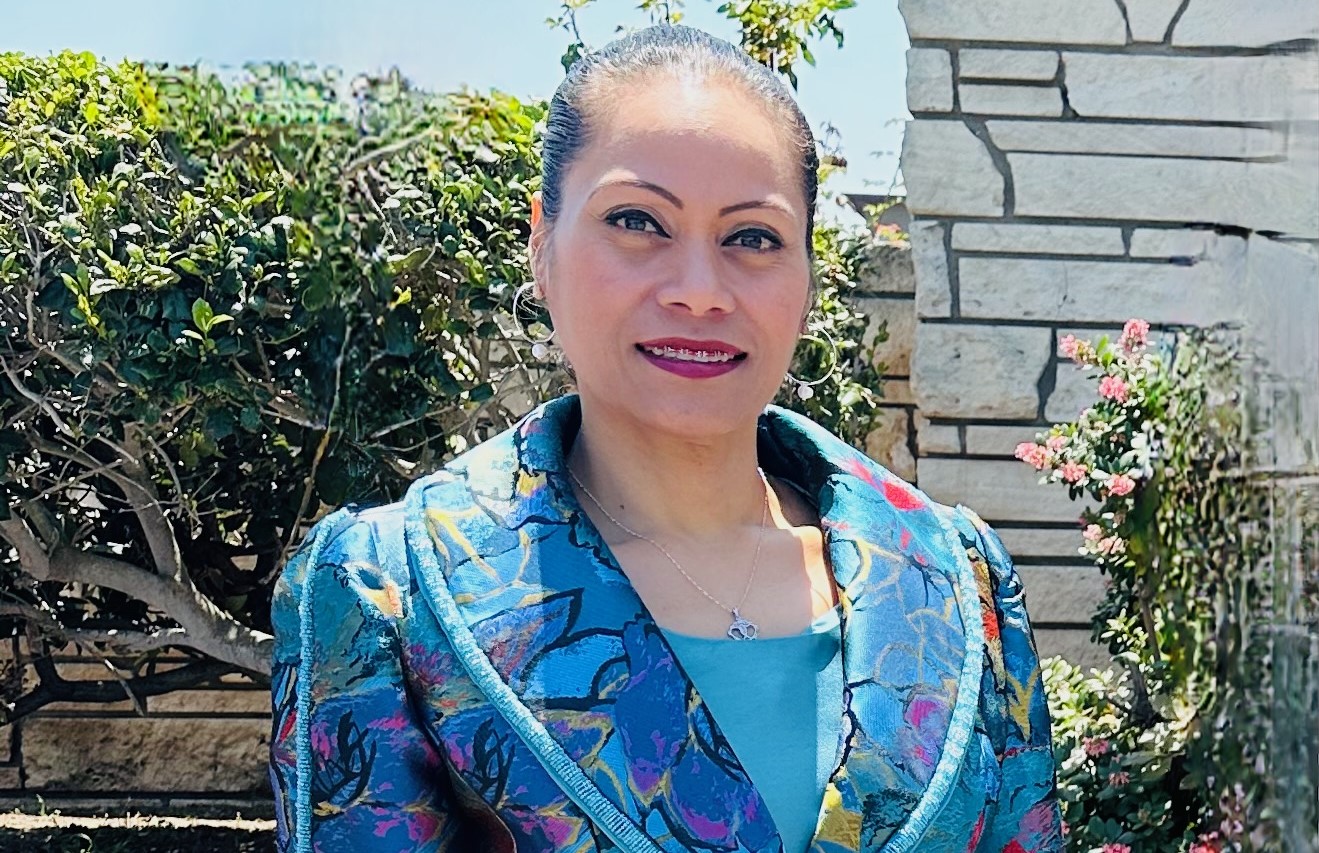SDSU joint doctoral student selected for new Fulbright-John Lewis Civil Rights Fellowship
Mele’ana Akolo will apply a human rights framework to her research on disparities faced women with substance use disorder in Tonga

Last spring, Mele’ana Akolo won a competitive Fulbright U.S. Student Program grant to research the gender disparities in treatment for women in Tonga struggling with substance use disorder.
Last month, Akolo got a cherry on top of her Fulbright.
A doctoral candidate in the joint SDSU/UCSD Program on Interdisciplinary Research on Substance Use, Akolo is one of just 28 Fulbright winners nationwide named Fulbright-John Lewis Civil Rights Fellows in the 2024-25 cycle.
About 2,000 university students and recent graduates receive Fulbright Student Program grants each year, including seven from SDSU during the latest round.
The fellowship, established by bipartisan legislation, honors the late Congressman John Lewis, a giant in the U.S. Civil Rights movement. It showcases Fulbright winners pursuing projects that inspire future generations to carry on his vision of nonviolent civil rights work and promote the understanding of the history and tenets of similar movements around the globe.
“I’m excited because social justice is definitely an angle that I want to take with my research,” said Akolo. “I am happy that I am able to incorporate (social justice) as a Fulbrighter and in my dissertation research.”
The daughter of immigrant parents from Tonga, Akolo grew up in the Bay Area and witnessed the pain substance abuse can bring to hard-to-reach and underrepresented communities.
Her research will employ a human rights framework to investigate methods, such as community-based outreach, which have the potential to reduce hurdles for women in accessing treatment for substance use disorder, leading to more equitable health care.
Not just in Tonga but across the globe, men access treatment for substance addiction at higher rates than women, said Professor María Luisa Zuñiga, campus director of the SDSU-UCSD Joint Doctoral Program in Interdisciplinary Research on Substance Use.
“Society does not like to acknowledge that a woman has a substance use disorder,” she said. “So, there is a lot of stigma and discrimination.
“The beauty of Mele’ana’s research is that it is very applicable to populations in the United States,” continued Zuñiga. “What she learns in this experience in Tonga can serve for understanding how you help populations, particularly women, who may not be accessing services.”
Fulbright-John Lewis Fellows will participate in activities such as a dedicated lecture series, leadership training, development opportunities and an in-person capstone seminar to share their research and experiences with Fulbright peers.
These Fulbright activities will highlight women of color researchers and science focused on underserved groups, resulting in new insights, said Akolo.
“With the research that we do know, it can be very narrow,” she said. “I feel if you are studying more underrepresented populations, then you can definitely gain more understanding to broaden that.”
In February, Akolo will launch her Fulbright research in Tonga, working with the Salvation Army and perhaps with the psychiatric unit of the island’s main hospital and the government prison system to interview people and collect data. She expects to be there for about a year.
While her research is in Tonga, Akolo thinks it could have impacts globally on “hard-to-reach women with substance use disorder, so I hope that what I find out can be applied to all of these different groups of women,” she said.



